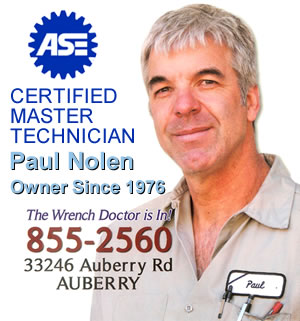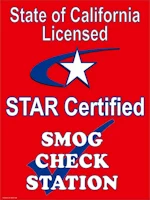


serving areas
our services
We offer the following services

Auberry Garage-Auberry's Choice for Quality Car and Truck Repair
WHEN QUALITY SERVICE MATTERS, SEE THE DOCTOR! SINCE 1976
 Receive honest and expert auto repairs, along with professional service, when you visit Auberry Garage. We're dedicated to delivering the finest automotive services at prices that won't break the bank. Give us a call at 559-855-2560 to book your appointment.
Receive honest and expert auto repairs, along with professional service, when you visit Auberry Garage. We're dedicated to delivering the finest automotive services at prices that won't break the bank. Give us a call at 559-855-2560 to book your appointment.
Same Day Service & Repair
We value your time, and that's why we've chosen a convenient location in Auberry, CA to better serve you. Whether it's regular maintenance or even more extensive repairs, our goal is to complete most services promptly, often within a single day. Regardless of the task's complexity, our focus is on ensuring speedy auto repairs that will have you back on the road in no time.
Transparent Pricing: What's the Cost?
Since 1976, Auberry Garage has been dedicated to providing customers in the Auberry area with transparent cost estimates. We believe in clear communication before any work begins. Let us know if you're interested in cost-effective strategies for auto repairs or exploring upgrades to better your car's performance. You can reach us today at 559-855-2560 to arrange an appointment.
Your Premier Auto Repair Destination in Auberry
Our valued customers consistently commend the unparalleled expertise of our auto mechanics, making us the preferred choice! With certified technicians and experienced auto repair specialists, we provide top notch service for both domestic and imported vehicles, across an array of makes and models.
To book your appointment, call us at 559-855-2560 or email us!
See What We Do
Emissions & Smog Testing, AC Repair, Asian Vehicle Repair, Brakes, Car & Truck Care, Domestic Cars & Trucks, Electrical Services, Electronic Services, Engine & Transmission, and Engine Maintenance

OUR REVIEWS


Jessica K.Having work done on a vehicle isn't always easy, especially when you have kids. I was in and out in no time! Great customer service! Thanks again!

latest News
What Do Different Oil Colors Mean For Your Vehicle?
What Your Motor Oil Color Says About Your Engine Health Motor oil is essential to your engine's performance-it...
What Happens During An Oil Change?
Ever wonder what exactly happens when you bring your car in for an oil change? Well, it's not just about...
5 Indicators Your Suspension Requires a Check up
A vehicle's suspension system comprises various components, including springs, shock absorbers, ball joints, and struts, among others. Ever wonder if...













